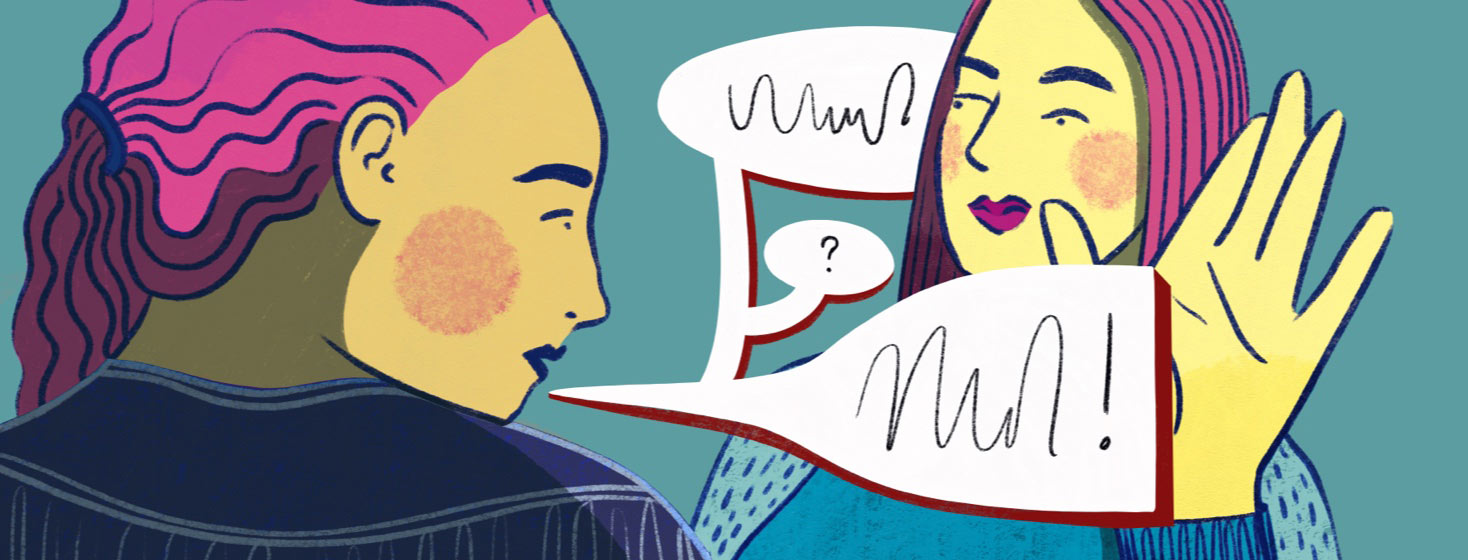Choosing Compassion When We Don't Know People’s Intentions
With Thanksgiving approaching, I encourage you to welcome this season as a reevaluation period. Similar to the basics of "treating others how we wish to be treated," we want to treat people with compassion (even when it may be difficult), the same way we want people to do for us with myasthenia gravis (MG).
I often feel misunderstood when talking about MG
When MG arises in my conversations with others, I frequently feel frustrated and misunderstood, specifically after unwarranted opinions, comments, and comparisons, unrequested expertise, shaming, and gaslighting. I react in a tone or manner that does not align with my values and how I would typically talk to someone.
Reflecting on my negative encounters with others, I commonly justify my poor choice of actions and words because, at that moment, I felt little compassion, understanding, and acknowledgment.
They question my MG experience
I have been given unasked-for expertise by nonprofessionals who do not have MG themselves. I have had people ask me MG-related questions, but respond by doubting or correcting my knowledge and understanding of MG.
MG is rare, so if someone knows a person with it or has read about someone with MG, they not only mention it, but usually compare my MG experience with them. Or they compare my experience to the characteristic MG symptoms they read with a quick internet search. This often leads to questioning my symptoms, treatment, and knowledge.
People I spend a decent amount of time around compare how my MG presents itself one day to past days. They doubt how it could vary so much and claim I'm making excuses for laziness.
"At least you don't have cancer"
Many read online that people with MG can live a normal life with treatment. Yet, repeatedly, people do not consider that treatments do not always work or fix all our MG problems, side effects of medications, and triggers. Or the fluctuating worries, fears, and hurdles we endure, including societal, physical, financial, and mental.
I've found myself in the same very uncomfortable situation multiple times when someone proceeds to respond to me with "At least you don't have cancer," or "At least you're not dying," or "You don't look sick. It can't be that bad." It is as if others are trying to make me feel selfish for having feelings and my personal struggles relative to my unique reality.
It is hard to trust myself
Some have told me I use the government for disability so I do not have to work. I am not even on disability at the moment, but no one should attempt to make any of us with medical conditions feel selfish. I have been told the government probably gave me MG through my COVID-19 vaccine, which leaves me feeling like a joke to others.
Acquaintances and family have advised me, unwarrantedly, that my medicines will cause me more harm. People have told me my symptoms must be due to a mental condition, and it's all made up in my head. It is hard to feel confident in our reality, trust ourselves, and believe in the care that we need to provide ourselves when people sometimes push us to a point to make us feel crazy.
Gaslighting by doctors
People express their self-proclaimed expertise, acting like they know the MG cure that science has yet to discover. In my short couple of years with MG, several individuals have informed me that the key to curing my symptoms is exercise, acupuncture, some supplement, or a diet change. Some think it's due to being a vegan that I have the symptoms I do!
Doctors, people we trust and put our hope in their hands, too often gaslight our symptoms and overlook us. I was mistreated for 2 diseases before my diagnosis of MG because doctors had minor evidence for an answer and did not want to spend more time trying to get solid proof for a correct diagnosis.
If we want to avoid unwarranted opinions, I find it is best to avoid the subject of MG unless we are familiar with the other individual's personality and tendencies. And it is never a good idea to return to a doctor or medical practice where we feel gaslighted and overlooked.
Considering the intention behind their words
When we feel shamed, discredited, stereotyped, gaslighted, or burdened, it is natural to respond to the person who made us feel poorly in a way that we believe will equate to similar emotions for them. Living in an able-bodied society can create resentment whenever we receive comments from non-disabled individuals. But we need to pause and consider the purposes of others. Most of the time, it is not the individual's intention to cause us negative emotions.
Many things people say that don't sit well with us likely have genuine and good intentions behind them. It could be someone's sense of humor or to lighten the circumstances, but it just wasn't worded or timed well. People may have needed more time to think before speaking to consider how we might interpret their words. We may also not be thinking about the struggles they could be dealing with. They may also have things that make them feel misunderstood or have built up frustration inside, just like us.
We all want to be understood
Let us not contradict our values when interacting with others by reacting back to people too quickly. Instead, take a moment to pause, contemplate, and interpret the intentions behind comments to give people the acknowledgment, compassion, and understanding we all desire.

Join the conversation